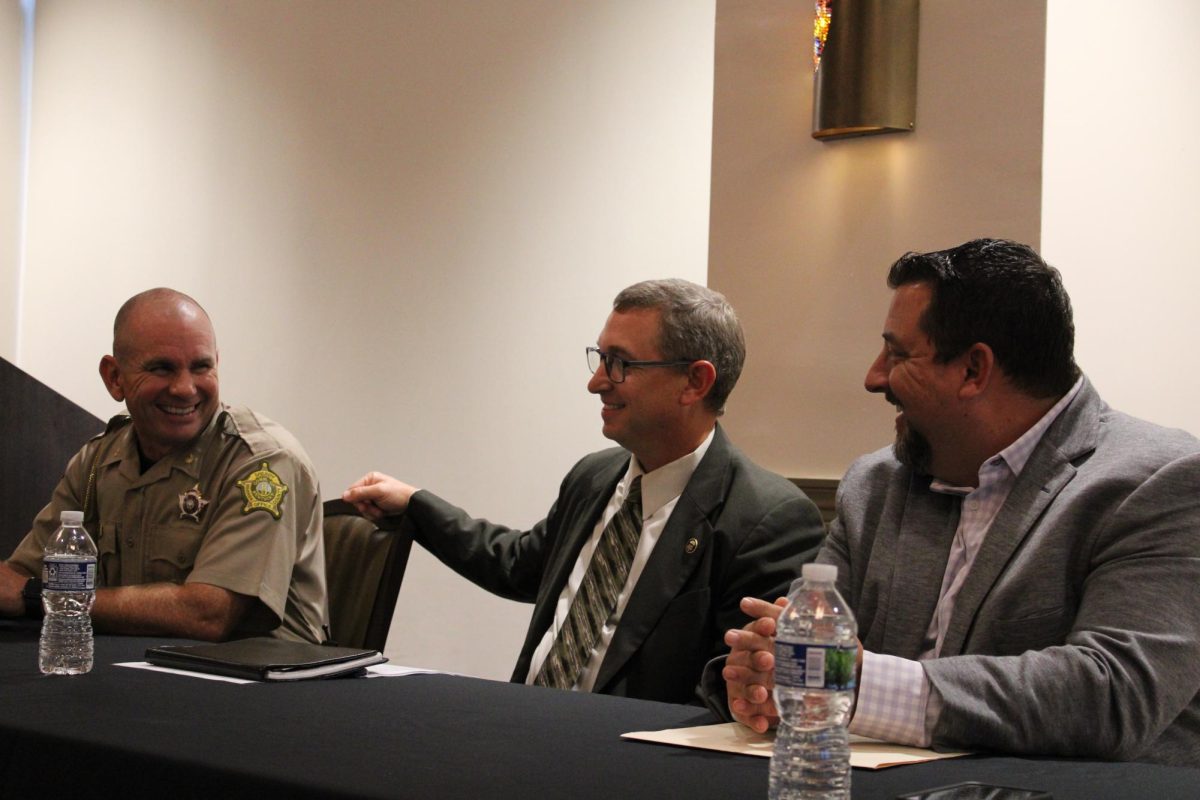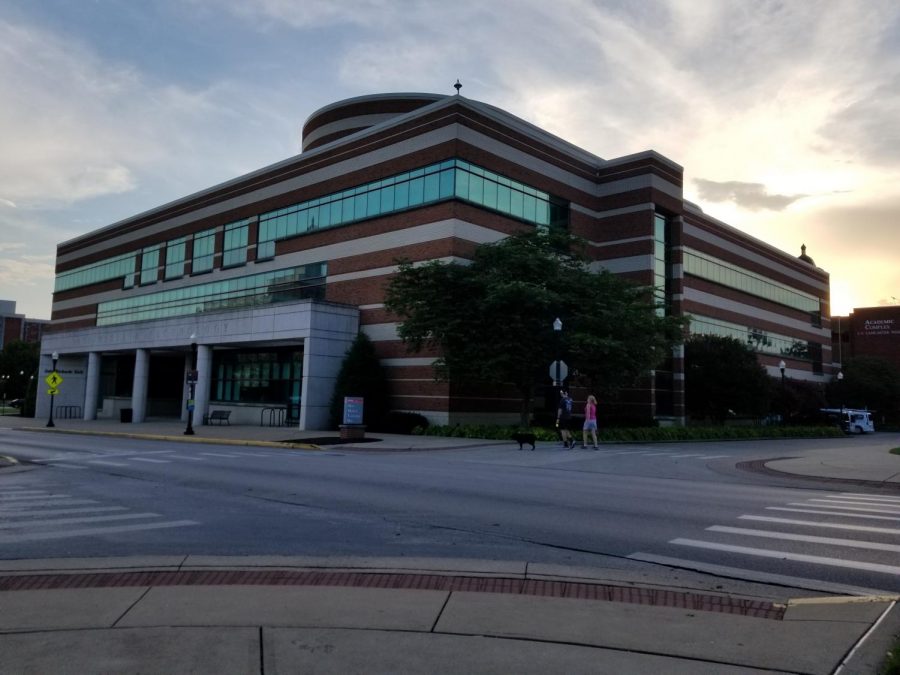The Department of Society, Culture, Crime and Justice Studies invited five professionals from local and federal law enforcement departments to speak to students on Sept. 28 in the Honors College and International Center about the different career options and their personal experiences.
The panelists included Assistant Chief Jason Scott of the Bowling Green Police Department, Agent Micheal Johnson from Homeland Security Investigations, Chief Deputy Kevin Wiles of the Warren County Sheriff’s Department, Agent Jamie Gordon from the Bureau of Alcohol, Tobacco, Firearms, and Explosives and Chief Mitchell Walker from the Western Kentucky University Police Department.
The discussion included topics such as the role of their agencies, advice for aspiring law enforcement professionals, education and training experiences and the perception of law enforcement in the media.
“There are many other job functions within any law enforcement agency,” Johnson said to attendees, “So computer forensics, intel analysis, there’s a whole plethora of other job functions that go with the law enforcement investigations side.”
Gordon and Johnson emphasized the importance of honesty and awareness when posting on social media.
“Social media is a big downfall for us, as far as new recruits,” Gordon said, “That is one of the things a lot of students get jammed up halfway through the academy from social media, so be careful with that. It does come back on everybody.”
The panelists also discussed how their different agencies are affected by the media.
Scott and Walker talked about the appreciation they receive and their positive relationship with the Bowling Green community and local media.
“We have an excellent relationship with our local news outlets. I can’t think of too many, if any, negative stories that have been made against the Bowling Green police,” Scott said, “I like to think that we have a very good name in the community, and that’s echoed in the interactions that were having with people when we’re out to just normal calls.”
Scott asked students to do their own research about topics including law enforcement in the media.
“Anything you see in the media always, whether a big case or its against an officer, I challenge you to try and do some independent research first before you jump to conclusions,” said Scott.
The discussion ended with a segment open for students to ask any questions they may have for the panelists.
When asked a question about how to refrain from letting their job affect their personal life, Gordon responded with “It’s a challenge.”
Wiles highlighted some common struggles that people might face while working in law enforcement and shared how he copes.
“Alcoholism is a problem in law enforcement and you have a lot of divorces, so I do think it’s something to be aware of if you’re going into this field,” said Wiles, “For me, it’s running. I love to run, so I run just about every day. It helps with my mental health.”
The event concluded with a reminder from panelists of available internships for students with a passion for law enforcement and that students can contact their offices if interested.
News Reporter Libby Simpson can be reached at elizabeth.simpson736@topper.wku.edu.






